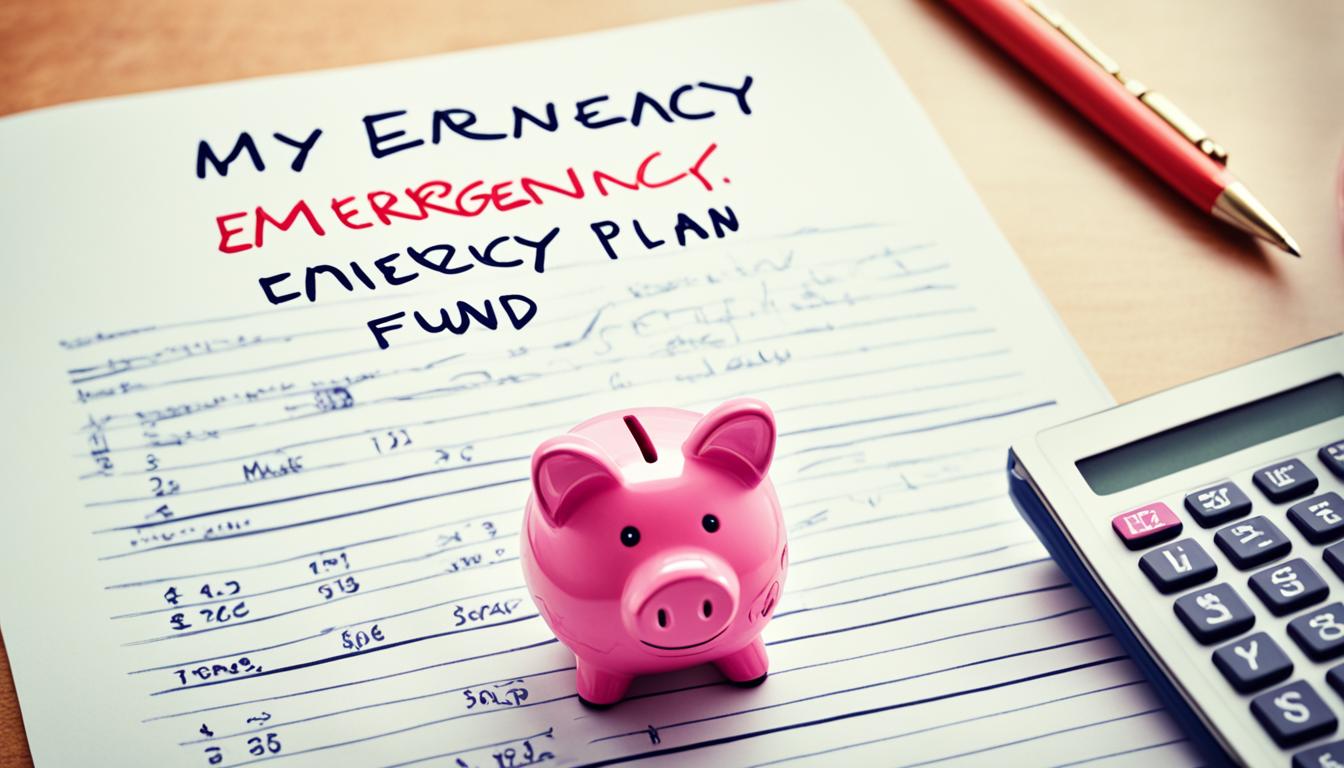Why do many people have trouble with money even with lots of online help?
These days, learning about money is easy. It’s vital to learn how to handle money well. This means knowing how to budget, save, invest, and manage debts. These skills help you become financially free.
We all have deep beliefs about money that affect our choices. This guide looks at how knowing more about money can change your life. By understanding and changing these beliefs, you can make better money choices. This leads to smart managing of your finances.
Nowadays, it’s easy to learn more about money thanks to the internet. By using online tools and putting what you learn into action, you can get smarter about money. Also, being good with money helps everyone by lowering the risk of big debts and financial crises.
Let’s explore how learning about money, like how to manage debt, budget, save, and invest, can make your future brighter.
Understanding Financial Literacy: More Than Just Budgeting
Financial literacy is more than understanding how to budget. It involves knowing how to make financial decisions, handle debt, and invest wisely. These skills are important for real financial freedom. To get better at managing money, one can learn from schools, financial advisors, or online.
Knowing why we spend money the way we do is important. Our views on money are often formed when we are young. These beliefs can affect how we use money. If we understand and change these beliefs, we can make smarter choices with our money.
Being financially smart involves learning several key skills. This includes budgeting, saving, and controlling debt. A report by the U.S. Federal Reserve in 2022 said that 28% of Americans have no money saved for retirement. Also, research found that 43% of young people use high-cost financial services, like payday loans. This shows how critical good financial education is.
To use money wisely, we need to put knowledge into practice. This means making a budget, saving money first, paying bills on time, and keeping an eye on our credit. People who know how to manage their money face fewer financial troubles. They make choices that help them and the economy. Knowing about finances also means taking less risks and feeling sure about handling money.
The Building Blocks of Financial Knowledge

Learning about money is key to securing a strong financial future. It often starts when we are kids. Parents help teach their kids how to handle money wisely.
Schools and life lessons also play a big part in growing our money skills. Knowing how to manage debt, budget, save, and invest is crucial. Together, these skills keep our finances healthy.
A study shows 65% of Gen Z and 55% of Millennial folks look to social media for money tips. This shows why having a strong base in money knowledge is important. It helps us sort through online advice.
The FEDERAL DEPOSIT INSURANCE CORPORATION ran a Youth Savings Pilot from 2014 to 2016. It showed how key learning about money is. The program helped open 4,500 new savings accounts for young people.
Community help was vital for the program’s success. Partners gave time, resources, help, and even money to support it. This teamwork helped boost money smarts among the youth.
The focus was on real-life money lessons linked to saving money. It was aimed at teachers and parents of K-12 students. This shows that we need a strong plan for teaching money skills. It helps build necessary financial abilities.
Practical Steps to Enhancing Financial Literacy
In today’s digital era, enhancing financial literacy is easier than before. Most Americans rate their financial knowledge at just 6.2 out of ten. This shows a big need to learn more about money. A 2023 Forbes Advisor survey found that 79 percent of people ages 18 to 41 use social media for financial tips. By tapping into various resources, you can boost your financial management skills a lot.
- Engage with Financial Newsletters: Financial newsletters give you the latest money management tips right in your email.
- Follow Financial Experts on Social Media: YouTube, Reddit, and TikTok have tons of updated financial advice. Following the right experts helps a lot.
- Listen to Financial Podcasts: Podcasts are perfect for learning about money when you’re busy. They cover budgeting, investing, and how to grow your wealth.
- Read Personal Finance Books: Personal finance books are full of wisdom. They teach you about budgeting, saving, investing, and more, giving you the tools you need.
Also, educational sites are key for getting smarter about money. They offer courses that sharpen your financial skills. Making a budget helps you understand where your money goes. Talking to a money expert can guide you in planning for the future.
By following these steps and using these resources, you can know more about money. This way, you can be more independent financially.
Importance of Early Financial Education

Learning about money young is key to smart handling later. Kids start learning about money by age 5. So, it’s critical to teach them literacy essentials early. This early stage is perfect to teach important money lessons for life.
In 2008, Utah led by making personal finance a must-learn in high school. This move shows how key school is in teaching money basics. Students with this education tend to not miss debt payments and have better credit scores. They also manage money well after finishing school.
Yet, not everyone knows enough about money. Black and Latinx folks often know less about money than White folks. This is mainly because of different money backgrounds. Also, only 22% of U.S. women know basic money stuff, unlike 38% of men.
Making sure everyone knows about money helps narrow wealth gaps. Knowing literacy essentials helps people make smart money choices, grow wealth, and avoid debt. Thus, society becomes more stable and fair money-wise.
People who know a lot about money don’t usually make risky money moves or use payday loans. Early lessons on money can make a big, positive difference in how we handle money and in making society richer.
In short, early money lessons are super important. They help kids learn good money habits and lessen money knowledge gaps among different groups. The good effects are huge. Teaching kids early about money makes them smart and tough about money later. For more on why early financial literacy matters, read more here.
Effective Money Management Techniques
Managing money well is key to handling personal finances. By using good techniques, we can reach financial stability and independence. Here are useful tips to start:
- Practicing Judicious Budgeting
- Embracing Disciplined Saving
- Adopting Debt Control Methods
- Practicing Good Credit Habits
The 50/30/20 rule is a smart way to budget. It means spending 50% of your income on needs. Another 30% goes to wants, and 20% is for saving. This helps you spend wisely and keep out of debt.
Using automatic transfers to a savings account is a great habit. Banks like Core Bank offer services for this. Saving money regularly guards against future financial troubles.
There are two debt control strategies: the snowball and avalanche methods. The snowball method pays off small debts first. The avalanche method focuses on high-interest debts. Both lessen financial stress and improve your credit.
Good credit habits keep your finances healthy. Always pay bills on time and use less than 30% of your credit limit. Avoid applying for new credit often. Tools like CreditWise from Capital One are useful for tracking your credit.
Using these techniques helps with wise money management. They also secure your financial future.
Importance of Financial Literacy for Economic Stability

Financial literacy is key for economic stability and societal wealth. Many people don’t know enough about money. The U.S. Federal Reserve Board of Governors found that 28% of Americans don’t save for retirement. At the same time, only 31% think their savings are enough for retirement. We must teach more about finances.
Millennials especially find money management hard. Even with lots of information, only 19% answer simple money questions right. They often use costly services like payday loans, with 43% of them doing so. This leads to 37% being financially unstable, unable to cover a $2,000 emergency.
Learning about finances helps more than just one person. It lets people handle debt well, make smart investment decisions, and plan for the future. This helps keep the economy stable and benefits society. It reduces financial crises and makes our economy stronger.
The lack of financial knowledge has caused big problems before. The 2008 financial crisis showed what happens when people don’t understand mortgages. If we focus on financial education, we can avoid such disasters. This will make our society more stable and wealthy.
Creating a Personal Budget
Setting up a budget is the first step to manage your money well. Start by looking at your fixed expenses. These are costs like where you live, school costs, and insurance. They don’t change much each month.
Then, look at your flexible expenses. These costs include things you need like food and getting around. They also include fun activities. It’s important to watch these expenses to keep your budget in check. Sites like Mint, Good Budget, and Budgetpulse help you make and follow spending plans online.
If you want to save money, try spending less on clothes, getting around, and food. Setting limits on these can leave you more money for savings or other goals.
It’s also smart to save for emergencies. Try to save enough to cover 3-6 months of expenses. Putting aside 5% of what you earn and saving for big buys is smart too.
Setting clear money goals is key. Have short-term goals for 1-3 years and long-term goals like for retirement. Setting specific spending limits helps keep your budget workable.
Lastly, check your budget every month. This helps you spot how you spend and adjust plans. Using tools like Spend Analysis and setting up auto-savings can keep you moving towards your money goals.
Investing Basics for Long-term Financial Health
Investing basics are key for a healthy financial future. This means knowing about compound interest, spreading out your investments, and understanding stocks and bonds. Compound interest, for example, shows us starting early pays off. If you save sooner, your money grows more over time. To illustrate, Cathy ended up with $232,418 more than Steve by starting 15 years earlier, though she contributed $50,000 less.
Research by FINRA shows knowing more about finances leads to smarter money habits. People who understand finances save more. They also keep an emergency fund and save for retirement. So, learning about investing helps you grow wealth and plan ahead.
Choosing where to keep your money is important too. The FDIC makes U.S. banks safe for your money. But, credit unions might offer you better rates on savings. It’s good to look for high-yield savings accounts. They give better interest rates, which means more money for you.
Saving smartly all through your career helps too. It makes the ups and downs of the market less scary. Companies like TIAA can give advice to make wise investment choices. But remember, getting money for life depends on the company’s strength. So, learning to invest is a big step towards a stable, financially independent future.



